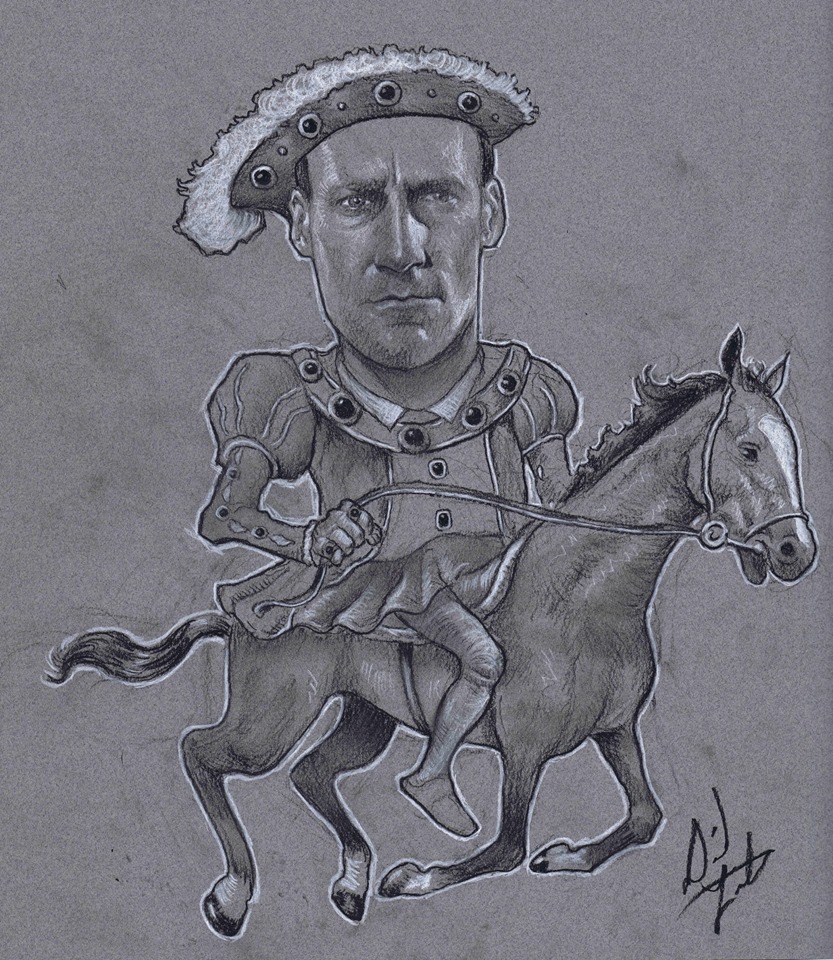Yesterday, Slate magazine ran an interview that finally cracked the code of who Don Draper really is. Basing their theory on an idea originally entertained during the previous season of “Mad Men,” Slate sought the counsel of investigative author Geoffrey Gray, whose 2012 book “Skyjack” attempted to uncover the mystery surrounding the disappearance of D.B. Cooper in 1971, after he hijacked a Boeing aircraft, coerced the authorities into giving him $200,000, then commandeered a parachute and jumped.
The Slate piece is a brilliant amalgam of investigative journalism and fan fiction, two genres that rarely overlap. The interviewer bears down on Gray with a barrage of questions, and Gray in turn uses his journalistic skills and “skyjacking expertise” to prick the balloon of Don Draper’s identity. It turns out the author has never even watched a minute of “Mad Men,” but Slate and Gray don’t let such an inconsequential detail impede their mission.
I must say that after I read the piece, I was filled with equal parts admiration and envy: Slate, that most venerable of Internet institutions, had done it again. But something remained amiss. The publication had sold itself short by not following their theory to its natural conclusion. I spent all night—well, ten minutes before bed—thinking things through, and am now confident that I know how “Mad Men” will end.
As season seven begins, something is already stirring in the depth of Don’s soul. It’s only a feeling. Let’s make it clear: this is not reasoning. He isn’t examining a receipt from Walmart he just found in his pocket and thinking, “$5000 for condoms alone?” No, until his forced sabbatical from Sterling Cooper and Partners, Don had come to begrudgingly accept his strange, imaginary identity.
Nevertheless, something has started to change. What will lead him to the eventual realization that he must make a drastic change? The moon landing, of course.
Now we know that the moon landing was faked by Stanley Kubrick, a fact proven beyond the shadow of a doubt by “Room 237,” a documentary whose devastating import made Wikileaks look like a wedding announcement in your local paper. Don’s ad firm has already links with the Nixon administration: they practically ran the new president’s campaign against Kennedy back in 1960. So it’s obvious that Nixon will turn to his old cohorts to help him stick one in the eye of the hemp-and-sandals brigade. This is not conjecture. It’s obvious! Just look at the facts: The “moon landing” took place in July 1969. Season seven takes place in 1969! Creedence Clearwater Revival’s “Bad Moon Rising” was released in April 1969. The first episode of season seven, “Time Zones,” debuted in April. And what happened the day after the episode aired? Blood Moon! A penumbral eclipse occurred April 2, 1969. Don’t make me spell it out for you, because it’s late.
Later on in the season opener, we see Don watching “Lost Horizon,” a Frank Capra film from 1937. Now I’ve never seen anything by Capra, but I’ve read his Wikipedia entry. Like Don, Capra was also a veteran, and like Don, he didn’t really fight! He was only there to make films to aid the US government’s war effort. There is now a clear analogy between what Frank Capra did (propaganda for the U.S. military), and what Don will have to do (help fake the moon landing, arguably the greatest propaganda victory of the Cold War, for NASA, an institution which has launched many a military satellite). I am told by IMDB that Frank Capra’s Christmas classic “It’s a Wonderful Life” features a man who is unhappy with his life. Don is unhappy with his life. The film is in black and white, as are so many of the films that Don watches in the first season. James Stewart’s character in “It’s a Wonderful Life” apparently tries to commit suicide by jumping off a bridge. The opening credits of “Mad Men” feature a man committing suicide by jumping off a building. And the words “building” and “bridge” both begin with the letter “b.”
Don’s wife Megan is a stand-in for Sharon Tate. The evidence speaks for itself. In an early scene of “Time Zones,” we witness Don and Megan having dinner with a smarmy television producer of small stature. It stands to perfect reason that this man represents Roman Polanski. As season seven progresses, Megan will leave Don for Roman Polanski and then meet her doom. Distraught over Megan’s killing by the Manson family, disgusted by the huge government conspiracy that he has to play a part in, and inspired by Frank Capra and James Stewart’s masterpiece, Don will finalize his plans to consign his problems to the past by becoming D.B. Cooper.
But the story will not end there. Not only will it be revealed that Don Draper is in fact D.B. Cooper, following his midair escape Don will make his way to the United Kingdom to start his new life as none other than—you guessed it fellow Anglophiles!—John Bingham, 7th Earl of Lucan.
Subconsciously, Don is already making the arrangements. The season premiere “Time Zones” ends with Don sitting out on his freezing balcony. The less fanciful among you might think the shot is a patently obvious metaphor: Don’s behavior has left him out in the cold. But in fact Don, the consummate chameleon, is trying to acclimatize himself to those cold British winters.
It stands to reason that Don will soon begin his new life as Lord Lucan. His former British partner, Lane Pryce, committed suicide in season five, so Don’s new identity will be his bizarre way of honoring Lane’s ultimate sacrifice. But Don’s past as a whoreson will catch up to him. In a fit of final madness, Don, hell-bent on obliterating anything in his degraded path, will bludgeon his kids’ new nanny—with whom he was obviously having an affair—attack his contemptible wife (please see Wikipedia for the uncanny resemblance between Lord Lucan’s wife and Betty Draper) and run away into the misty moors.
A post-credits shot will show him sitting astride a majestic beast, the legendary Irish racehorse Shergar.
(Illustration courtesy of David Lambert.)












